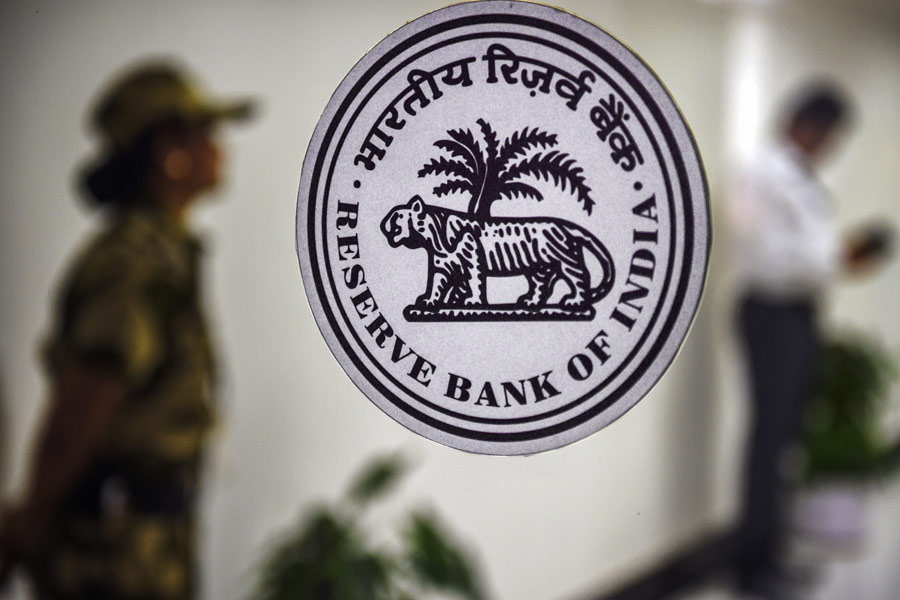A sharp rise in interest income, particularly from foreign sources, and a drop in provisions were the two key factors that led to the Reserve Bank of India (RBI) transferring a record sum of Rs 2.11 lakh crore to the Centre, its balance sheet for 2023-24 showed on Friday.
With global interest rates staying at an elevated zone during the year as central banks increased borrowing costs to tackle inflation, the RBI benefited from its holdings of securities and deposits.
Its interest income from foreign sources showed a whopping jump of 71 per cent to ₹1.03 trillion in 2023-24, up from ₹60,297.18 crore in the previous fiscal.
Such earnings from domestic sources showed a modest rise of 3 per cent as it increased to ₹85,428.09 crore from ₹82,775.93 crore in 2022-23.
Another boost to its balance sheet was the provision of ₹42,819.91 crore made and transferred to Contingency Fund (CF) to maintain the risk provision at the level of 6.50 per cent of the size of the balance sheet. The amount transferred was significantly lower than the nearly ₹1.31 trillion that was transferred to CF last fiscal.
The contingency fund is a specific provision meant for meeting unexpected and unforeseen situations, including depreciation in the value of securities, risks arising out of monetary and exchange rate policy operations, systemic risks and any risk arising on account of special responsibilities upon the Reserve Bank.
``On the expenses side, the major factor that decides the quantum of transferable surplus is the provision towards CF. Since the transfer of surplus is dependent on meeting dual objective of maintaining contingency risk buffer (CRB) between 5.5-6.5 per cent and economic capital between 20.8-25.4 per cent of total balance sheet, the required dual condition was comfortably met by making a provision of ₹42,819.91 crore in CF in 2023-24 leading to a higher transfer of surplus in 2023-24,” a note from the economic research department of State Bank of India (SBI) said.
The higher dividend payments could also continue in the current fiscal.
“US yields continuing at above 4 per cent will imply asset income boost for the RBI as well as bolstering foreign exchange reserves through dollar buying. Thus there is a large probability of RBI dividend being healthy in 2024-25 as well and may even be closer to ₹ 2.1 trillion,’’ the SBI Research note said.
The RBI disclosed that during the fiscal the size of its balance sheet increased 11.08 per cent to ₹70.47 trillion from ₹63.45 trillion as on March 31, 2023. The period saw its income rising to ₹2.75 trillion against ₹2.35 trillion whereas expenditure declined to ₹64,694.336 crore from ₹1.48 trillion in 2022-23.
The central bank further disclosed that as on March 31, 2024, total gold held by it was higher at 822.10 tonnes compared with 794.63 tonnes as on March 31, 2023.
On the Indian economy, the RBI’s annual report said that it is projected to grow at 7 per cent in the current fiscal year.
This is on the back of a sustained strengthening of macroeconomic fundamentals, robust financial and corporate sectors and a resilient external sector.
Fintech regulation
The RBI has came up with the final framework for establishing self-regulatory organisations (SROs) in the fintech industry.
No single entity should own more than 10 per cent in SRO, and the entity desirous of applying for SRO should have a minimum net worth of ₹2 crore within one year of recognition.
SRO should be registered in India, but can have foreign fintechs as its members, the norms said, adding that membership should be voluntarily.
Its functions and responsibilities include standard setting, oversight and enforcement and developmental activities for the sector.
The RBI can nominate or depute observers on the SRO-FT’s board.











